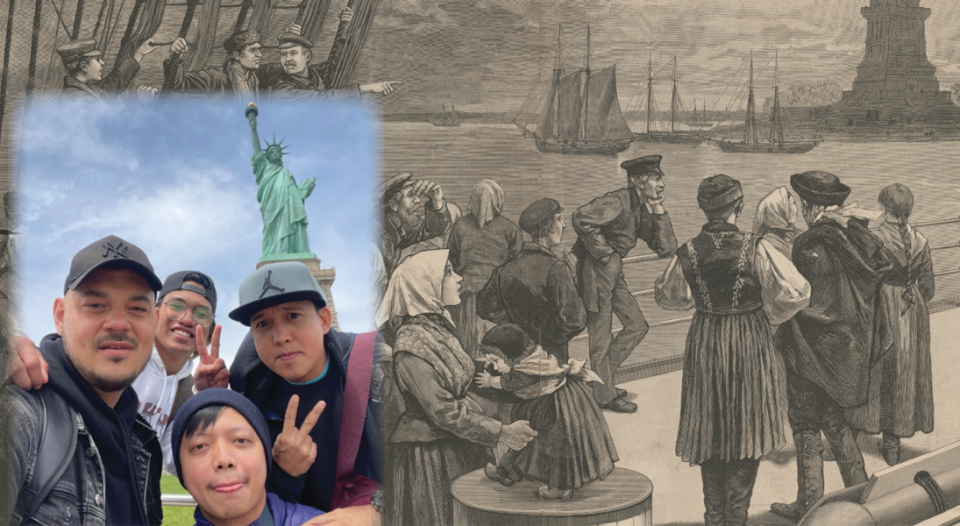Winds of change have swirled around the globe in the century and a half since Seafarers International House (SIH) was born. But the ELCA ministry, guided by its core mission of welcoming the stranger, remains a port in the storm for some of the world’s most vulnerable people.
The ministry was founded in 1873 by the Swedish Lutheran Church. Its original purpose was to help Swedish seafarers navigate the confusion, temptations and overall danger of New York City—including the risk of being swindled or, worse, shanghaied.
Before long the group was also assisting immigrants from Sweden in the New York area, and eventually immigrants and seafarers of any nationality or faith tradition.
During its 150 years of service, SIH has been headquartered at multiple Manhattan locations and has operated under several different names. The current one went into effect just before the formation of the ELCA in the late 1980s.
“We are the Lutheran response to the urgent needs of vulnerable seafarers and immigrants,” said Henryk Behnke, SIH’s director of development and communications. “We are not a place; we are a service, and we are the only Lutheran organization that takes care of seafarers.”
That service takes many forms, Behnke explained, and the work benefits two distinct populations prone to want, isolation and other forms of hardship. “Often the people we help work on container ships,” he said. “They’re from low-wage countries, and often they don’t have shore leave anymore. They apply for visas in their homeland, but their consulates have backlogs, so they can’t get visas.”
With seven port chaplains spread among four northeastern locations—New Haven, Conn.; Baltimore; Albany, N.Y.; and New York City/New Jersey—SIH offers spiritual care and social advocacy along with simple acts of kindness such as picking up supplies for crew members who are prohibited by law from leaving their vessel.
“We are the only Lutheran organization that takes care of seafarers.”
“The main thing is our people come on board and are present,” said Behnke, an immigrant himself, from Germany. “We counsel people, hear about their troubles, see how they are doing. Our port chaplains will go shopping for the seafarers, bring them essentials—or if they’re really craving a pizza or Burger King, they’ll bring them that. And we’ll bring them Wi-Fi—often they don’t have Wi-Fi connectivity—so they can reach out to their loved ones.”
Behnke notes that in 2022 alone, SIH boarded almost 1,400 vessels and visited 15,135 seafarers, most of them on container ships—cargo vessels that carry their load in truck-sized, intermodal boxes. In addition, more than 1,700 seafarers able to leave their ships were given rides to places such as shopping malls and medical facilities.
That same year the ministry provided 2,301 lodging nights to a total of 169 seafarers, plus 23 immigrants—people seeking asylum from persecution, war and other forms of violence—who receive in-depth assistance from SIH.
From 1964 until the pandemic, the ministry operated an 84-room guesthouse, using about 15 rooms for seafarers and immigrants and renting out the rest to the traveling public. That revenue covered about 75% of its budget. When COVID put the brakes on travel, a new business model was needed, and SIH opted to lease its building to a nonprofit, Breaking Ground, that provides transitional housing. The lease will continue until at least 2026, Behnke said, so SIH is looking for a new “mission-based place” in New York City, with administrative offices and 16 to 20 guest rooms.
In the interim, seafarers and migrants needing somewhere to stay are being placed in the Markle, a hotel in Greenwich Village, and in various Midtown Manhattan hotels. Seafarers pay a nominal fee, and immigrants stay for free.
“Even the American seafarers are at the lower end of the food chain,” Behnke said. “They’re often recent immigrants who work for big shipping companies, and they can stay with us for $50 a night in Manhattan.”
Christmas at Sea
In addition to lodging and immigration services, another important SIH program is Christmas at Sea. SIH port chaplains deliver satchels that individual donors and volunteers, as well as congregations, have filled with holiday cheer in the form of sweaters, scarves, hats, T-shirts, sweets, nuts and season’s greetings. Last year the chaplains handed out nearly 3,000 satchels, and SIH is hoping for even more in 2023.
“It’s nice outreach to the stranger, and we’re mindful that this is not only for Christians but also for anyone else who has a need,” Behnke said. “We look at our work as welcoming the stranger, showing them we care. Ninety percent of what we consume comes from container ships and bulk carriers, on the backs of people with low wages who go unrecognized for the sacrifices they make.”





